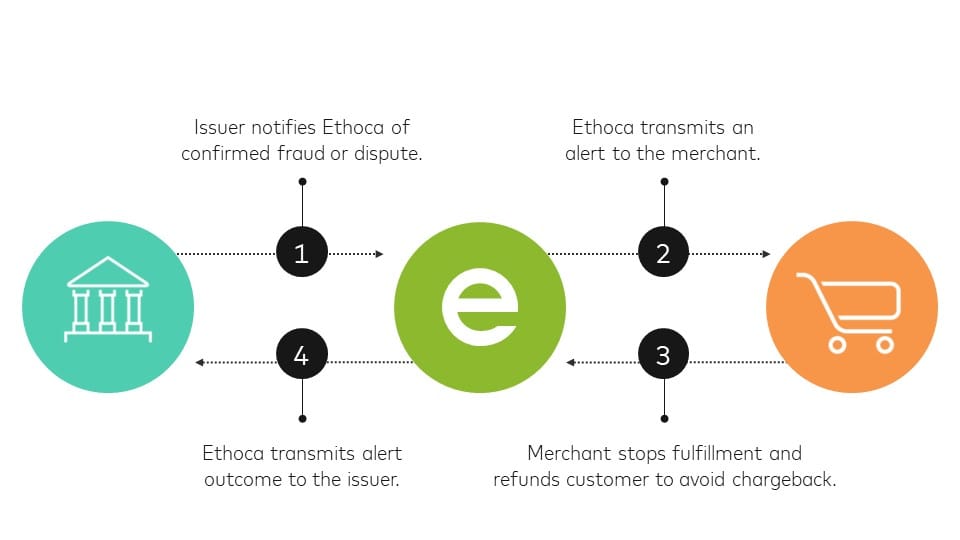
In today's digital age, managing finances has become easier and more convenient than ever before. One aspect of financial management that has gained popularity is recurring payments. While recurring payments are commonly associated with bills and subscriptions, they can also be utilized for payments to friends. In this blog post, we will delve into the world of recurring payments to friends, exploring why they can be useful, how to set them up, and how to effectively manage and monitor them. We will also discuss common pitfalls and provide tips on how to avoid them. So, if you find yourself regularly splitting expenses with friends or making recurring payments, this post is for you. Let's dive in and gain a better understanding of how to manage recurring payments to friends effectively.
Introduction to Recurring Payments
Recurring payments have revolutionized the way we handle our financial obligations. Traditionally, recurring payments were mainly associated with bills and subscriptions, such as utility bills, gym memberships, or streaming services. However, the concept of recurring payments has expanded beyond these traditional boundaries and can now be applied to payments made to friends.
In essence, recurring payments involve setting up a schedule for automatic transfers of funds from your account to your friend's account. This can be particularly useful when you regularly share expenses, such as rent, utilities, or groceries, with your friends. Rather than constantly reminding each other to make payments or manually transferring money every time, recurring payments provide a convenient solution to streamline the process.
By utilizing recurring payments, you can automate the payment process, ensuring that the funds are transferred on time and reducing the chances of any misunderstandings or delays. Additionally, recurring payments offer the benefit of automatic reminders, ensuring that you and your friends stay on top of your financial commitments without the need for constant communication.
In the following sections, we will explore the various reasons why recurring payments to friends can be useful, how to set them up effectively, and best practices for managing and monitoring these payments. So, let's explore the many advantages of incorporating recurring payments into your financial interactions with friends.
Why Recurring Payments to Friends Can Be Useful
Recurring payments to friends can bring numerous benefits and convenience to your financial interactions. Let's explore some of the key reasons why incorporating recurring payments can be useful:
Sharing Common Expenses
One of the primary reasons for using recurring payments is to efficiently split common expenses with friends. Whether you're sharing the cost of rent, utilities, groceries, or any other recurring expenses, setting up automatic payments can simplify the process. With recurring payments, you can easily divide the expenses and ensure that everyone contributes their fair share without the need for constant reminders or manual transfers.
Automatic Reminders and Payments
Keeping track of financial commitments can be challenging, especially when dealing with multiple friends and various shared expenses. Recurring payments eliminate the need for manual reminders and follow-ups. By setting up automatic payments, you and your friends will receive reminders and notifications before each payment is deducted. This helps to ensure that everyone stays on top of their financial obligations without the hassle of constantly communicating or coordinating payment schedules.
Eases Money Management
Managing finances can become overwhelming, particularly when dealing with numerous transactions and payment due dates. Recurring payments simplify money management by automating the process. You can set up a payment schedule that aligns with your income and budget, allowing you to effortlessly track and plan your expenses. This helps to avoid late payments, missed deadlines, or the need to constantly monitor your financial commitments.
Convenience and Time-Saving
Recurring payments save you valuable time and effort. Instead of manually transferring money each time a payment is due, you can set up the payment schedule once and let the system handle the rest. This convenience allows you to focus on other aspects of your life and eliminates the stress of remembering to make payments or chasing friends for their share of expenses.
Transparency and Accountability
Recurring payments provide transparency and accountability in financial transactions with friends. Each payment is documented, providing a clear record of contributions made by each individual. This transparency helps to avoid misunderstandings or disputes about who has paid what, creating a fair and accountable system for everyone involved.
By understanding the various benefits of recurring payments to friends, you can see how this approach can simplify your financial interactions, enhance communication, and promote a healthy financial relationship among friends. In the next section, we'll explore how to set up recurring payments effectively.
How to Set Up Recurring Payments
Setting up recurring payments to friends requires careful consideration and a few essential steps. Let's explore the process of setting up recurring payments effectively:
Choosing the Right Platform
The first step in setting up recurring payments is selecting the right platform or service to facilitate the transactions. There are several options available, including mobile payment apps, online banking platforms, and peer-to-peer payment services. Research different platforms to find one that aligns with your needs, offers secure transactions, and supports recurring payments.
Setting Up a Payment Schedule
Once you've chosen a suitable platform, the next step is to establish a payment schedule. Determine the frequency of payments, whether it's weekly, monthly, or any other interval that works best for your situation. Consider factors such as billing cycles, due dates, and the availability of funds in your account. Communicate and agree on the payment schedule with your friends to ensure everyone is on the same page.
Assigning Payment Amounts
Assigning payment amounts is a crucial aspect of setting up recurring payments. Calculate the total amount for each payment cycle and divide it among the involved parties based on the agreed-upon sharing arrangement. Ensure that the assigned payment amounts accurately reflect each individual's share of the expenses. This step helps maintain fairness and transparency in the payment process.
Verifying Payment Information
Before initiating recurring payments, verify and double-check the payment information of your friends. Ensure that you have accurate and up-to-date details, such as their account numbers, usernames, or email addresses associated with the payment platform. Accuracy in the information is vital to avoid any payment errors or delays.
Initiating Recurring Payments
Once all the necessary details are in place, initiate the recurring payments on the chosen platform. Follow the platform's instructions to set up the payments, providing the required payment information, frequency, and payment amounts. Review the setup carefully to ensure accuracy before confirming the initiation of recurring payments.
Communicating with Friends
Effective communication with your friends throughout the process is essential. Inform them about the setup of recurring payments, including the platform used, payment schedule, and their assigned payment amounts. Openly discuss any concerns or questions they may have and ensure everyone is comfortable with the arrangement. Clear communication helps foster trust and understanding among friends involved in the recurring payment process.
By following these steps, you can set up recurring payments to friends smoothly and efficiently. In the next section, we'll explore how to effectively manage and monitor your recurring payments to ensure they remain accurate and up-to-date.

Managing and Monitoring Your Recurring Payments
Once you have set up your recurring payments to friends, it's crucial to effectively manage and monitor them to ensure accuracy and avoid any potential issues. Here are some key practices for managing and monitoring your recurring payments:
Regularly Reviewing Your Payments
It's essential to regularly review your recurring payments to ensure they are accurate and up-to-date. Take the time to review the payment schedule, amounts, and payment recipients. This helps to identify any discrepancies or errors that may have occurred during the setup process. Regular reviews also allow you to track your expenses and ensure that you are not overpaying or underpaying your friends.
Making Adjustments as Needed
Life is dynamic, and circumstances may change over time. Therefore, it's important to be flexible and make adjustments to your recurring payments when necessary. If there are changes in shared expenses, such as a fluctuation in utility bills or a shift in the number of individuals involved, update the payment amounts accordingly. Additionally, if you or your friends experience changes in financial situations, such as a new job or increase in income, consider adjusting the payment schedule or amounts to reflect these changes.
Ensuring You're Not Overpaying
Occasionally, expenses may fluctuate or decrease, resulting in overpayment if the recurring payment amounts remain unchanged. Regularly check your bills and shared expenses to ensure that you are not paying more than your fair share. Communicate with your friends and discuss any adjustments needed to align the payments with the actual expenses. This helps maintain fairness and avoids any unnecessary financial burden.
Monitoring Payment Notifications and Statements
Stay vigilant and keep an eye on payment notifications and statements from your chosen payment platform. Regularly check your email or app notifications to ensure that payments are being processed correctly and on time. Take note of any payment failures or delays and address them promptly to avoid any disruptions or misunderstandings.
Maintaining Communication with Friends
Effective communication with your friends throughout the process is vital for successful management of recurring payments. Regularly check in with them to ensure that they are receiving their payments correctly and on time. Encourage open dialogue to address any concerns or questions that may arise. By maintaining clear and open communication, you can build trust and strengthen the financial relationship with your friends.
By implementing these management and monitoring practices, you can effectively ensure the accuracy and smooth operation of your recurring payments to friends. In the next section, we will discuss common pitfalls associated with recurring payments and provide tips on how to avoid them.
Common Pitfalls and How to Avoid Them
While recurring payments to friends can greatly simplify your financial interactions, it's essential to be aware of common pitfalls that can arise. By understanding these pitfalls and taking proactive measures, you can avoid potential issues. Let's explore some common pitfalls and how to avoid them:
Overlooking Small Recurring Payments
It's easy to overlook small recurring payments, especially if they are for relatively insignificant expenses. However, these small amounts can add up over time and impact your budget. To avoid this pitfall, regularly review your payment schedule and ensure that all expenses, regardless of their size, are accounted for. Consider consolidating smaller expenses into one payment or setting up reminders to avoid missing any payments.
Forgetting to Cancel Payments
Sometimes, circumstances change, and you may no longer need to make recurring payments to certain friends. Forgetting to cancel these payments can lead to unnecessary deductions from your account. To avoid this pitfall, periodically review your recurring payments and assess whether they are still necessary. If not, make sure to cancel the payments promptly.
Neglecting to Update Payment Information
It's crucial to keep your payment information up-to-date, especially if there are changes to your bank account, credit card, or payment platform credentials. Neglecting to update this information can result in failed payments or incorrect deductions. To avoid this pitfall, regularly review and update your payment information as needed. Notify your friends of any changes to ensure a smooth transition and uninterrupted payments.
Lack of Communication and Agreement
Clear communication and agreement among friends are vital for successful recurring payments. Failing to discuss and establish clear guidelines regarding the payment schedule, amounts, and any changes can lead to misunderstandings and disputes. To avoid this pitfall, ensure open and ongoing communication with your friends. Regularly discuss and review the payment arrangement, address any concerns, and make adjustments as needed. This helps maintain transparency and accountability among all parties involved.
Insufficient Funds in Your Account
Insufficient funds in your account can result in failed payments and potential fees. To avoid this pitfall, regularly monitor your account balance and ensure that sufficient funds are available for the recurring payments. If necessary, consider setting up automatic transfers or reminders to deposit funds into your account before the payment due dates.
By being aware of these common pitfalls and implementing the suggested measures, you can navigate the world of recurring payments to friends with ease and avoid any potential issues. Remember, proactive management, clear communication, and regular reviews are key to ensuring a smooth and successful experience.


